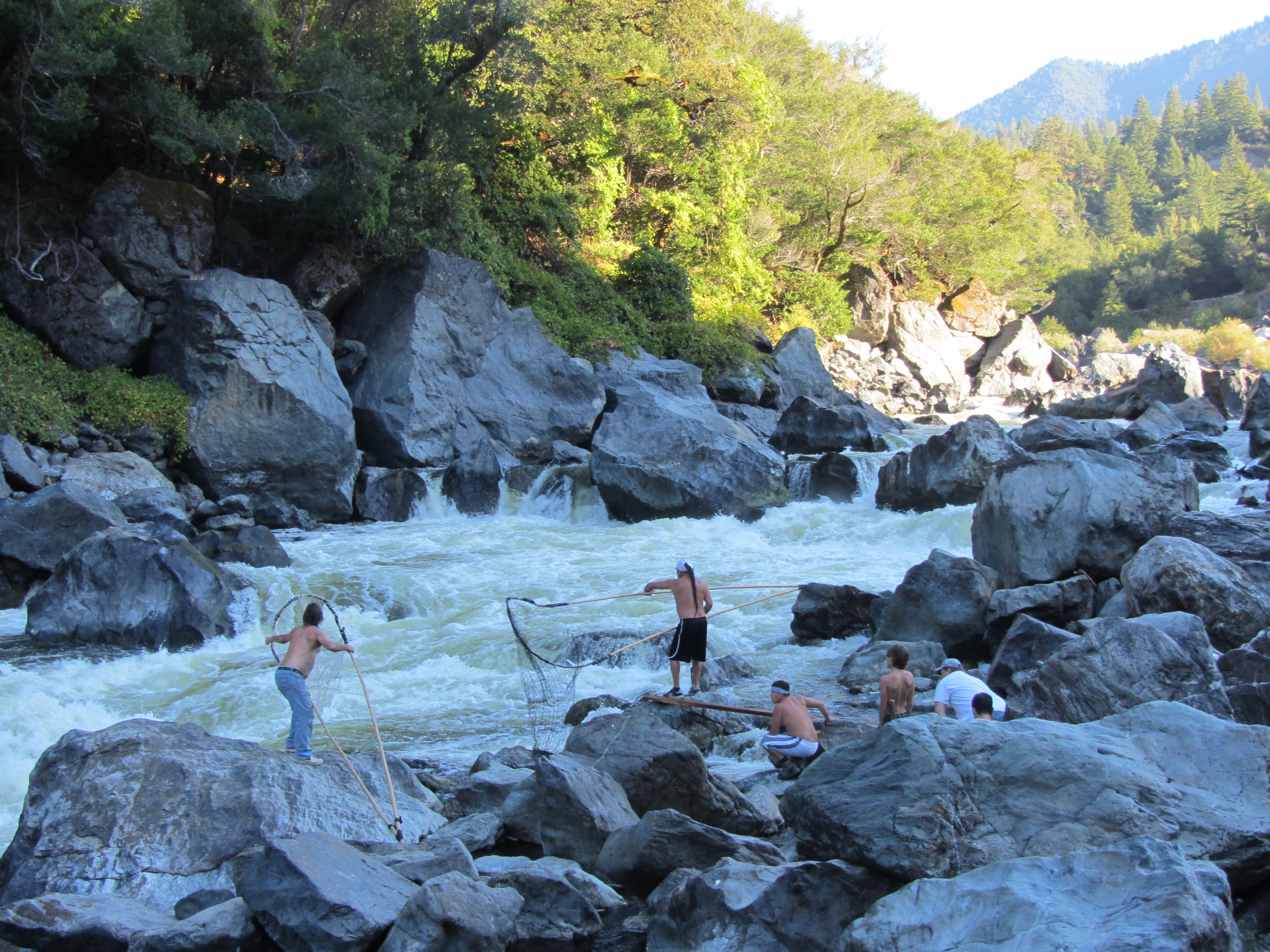


Photos by Carolyn Smith, Sibyl Diver, and Daniel Sarna-Wojcicki.
This collaborative research initiative engages the Karuk Tribe, the Karuk Dept. of Natural Resources and the Karuk Tribal community to co-develop an assessment tool to evaluate the social, cultural and economic impacts of dam removal in the Klamath Basin from a Tribal perspective. The assessment focuses on the social impacts of dam removal to Karuk Tribal community well-being including cultural resources, livelihoods, self-governance, education and holistic health. The current assessment aims to provide a baseline for understanding social impacts of Klamath dam removal processes that are scheduled to begin in the next year.
Our team is composed of Karuk cultural practitioners, Karuk DNR staff and researchers based at Stanford University. Our assessment, developed in collaboration with Karuk colleagues, includes a community-wide survey, focus groups with elders, cultural practitioners, Tribal government leaders, KDNR staff and youth, and interviews with policy makers, Federal and State agency representatives and engineering, construction and restoration firms working on dam removal.
Our goal is to better align dam removal processes and outcomes with the Karuk community’s hopes and visions for river restoration and cultural revitalization. After decades of activism and hard work that Tribal leaders have put into taking down the dams, we are honored to support community-based efforts towards ensuring that the benefits of dam removal flow to those most severely impacted by the dams.
The initial idea for the research arose during the Klamath Dam Removal Science and Monitoring Technical Coordination Workshop organized by Klamath, Karuk and Yurok Tribal representatives and scientists in Medford Oregon in February, 2020. Workshop participants noted that while previous dam removal studies had tracked changes in biophysical indicators, little to no work had been done to assess social impact over time — which was noted as a knowledge gap that needed to be addressed through future studies. Following confirmation by workshop participants around the need for this work, Karuk tribal managers invited Dan Sarna and Sibyl Diver and additional collaborators to work with them to develop the initiative.
This study has been approved by the Stanford University IRB, eprotocol #67046 (September 30, 2022). For additional information, please see our Two-Pager Information Sheet or Research Information Sheet.